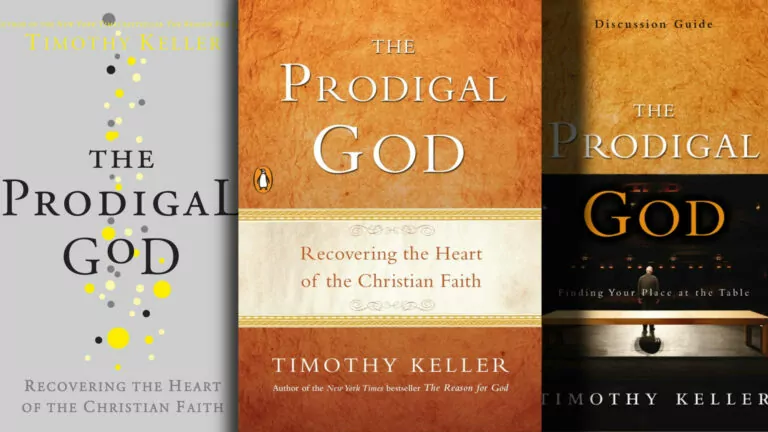by Timothy Keller
2009 / 240 pages
Rating: Good/GREAT/Gift
My pastor recently concluded a series of sermons on a single 21-verse passage of Scripture. I was delighted to discover just how much God has to tell us in the Parable of the Prodigal Son.
I felt that same delight while reading Tim Keller’s Prodigal God, which is also on Luke 15:11-32. Keller begins by explaining why he doesn’t call this passage the Parable of the Prodigal Son. He notes that the word “prodigal” means “recklessly spendthrift” and the term is “therefore as appropriate for describing the father in the story as his younger son” since the father “was literally reckless because he refused to ‘reckon’ or count his [son’s] sin against him or demand repayment.” Thus Keller arrives at his book’s title, Prodigal God.
But that is still not what he calls the parable. He calls it the parable of “The Two Lost Sons.” Two lost sons? Wasn’t there just one? After all, the older brother never left home!
But as Keller explains, the older son was just as lost as the younger. The younger son’s rebellion was more obvious, but the older son shows that he isn’t interested in his father’s happiness either. If he had been, he would have rejoiced when his father rejoiced. Instead it becomes clear that he has only been obedient with the expectation of reward, so when that reward doesn’t come to him like he expected, he gets bitter.
Keller argues there are a lot of older brothers in the Church. We all know we are sinners, but because we don’t fully understand how all we receive is a matter of grace, we still find ourselves looking down on “younger brothers” caught up in “big sins” like homosexuality or prostitution (we may be sinners, but at least we don’t sin like that!). This is rebellion of a more subtle kind – it is a form of works righteousness, because even as we acknowledge we aren’t sinless, our gracelessness to those caught in “big sins” shows we think ourselves in some way deserving of the goodness God has showered on us.
Prodigal God is very engaging and quick read. I believe it is a very relevant and challenging book for our churches and would recommend it to anyone 16 and up. The only caution I would note is that Pastor Keller is a leading proponent of theistic evolution. That doesn’t impact this book, but in his other writings Keller doesn’t treat Genesis 1-2 with the same care, rigor and reverence with which he plumbs the depths of Luke 15 here. But a very enthusiastic two thumbs up for Prodigal God.











